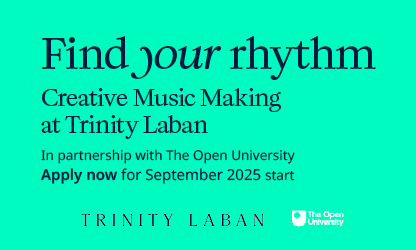Changes to making Gift Aid claims
There have been some recent changes to making a Gift Aid claim. These changes shouldn't have a significant impact on your Gift Aid claims and admin processes, but are worth being aware of.
If you don’t currently claim Gift Aid for your group, it is worth looking into. UK charities can claim an extra 25p on every £1 donated by a UK taxpayer.
It is not necessarily just straight up donations that are eligible either – it is possible to claim Gift Aid on the membership subscription you collect from your members. We know subscriptions are a big source of income for groups and you could potentially be boosting it by 25%.
The claiming process and admin involved is not onerous and once they are set up most groups find the gains are well worth their while.
Find out more in our detailed Gift Aid guidance
Recent changes and updates
Gift Aid declarations
The requirement for a donor’s declaration has always been to provide their surname and the initial of their first name.
Groups claiming Gift Aid are now 'strongly encouraged' to provide full first names whenever it is practical and possible to do so. The first name a donor is reasonably and ordinarily known by is fine - you aren’t expected to get the donor's legal name. You could do the following:
• If you hold first names of existing donors, include them in your Gift Aid claim.
• If you don’t hold the first name of existing donor but it is practical and possible to get them, then do.
• Collect first names in future where it is practical and possible to do so.
• Document any actions undertaken to improve the collecting of first names.
Gift Aid Small Donations Scheme
The Gift Aid small donations scheme (GASDS) means charities can claim Gift Aid on small donations without the donor having to make a Gift Aid declaration – or even be a UK taxpayer. It allows charities to claim Gift Aid on money collected in a bucket shake, for example.
There are various rules about when and how much you can claim – most of which have not changed – except that the maximum value of a single donation that can be claimed under GASDS has increased from £20 to £30.
If you claim Gift Aid but don’t claim under the GASDS, find out more in our full guidance.
Donor benefits
Donations are not eligible for Gift Aid if the donor receives a benefit which has a value over a certain threshold. These thresholds have changed recently.
Previously
| Donation amount | Maximum value of benefit |
| Less than £100 | 25% of donation amount |
| £101 - £1000 | £25 |
| Over £1000 | 2.5% of donation amount |
New rules
| Donation amount | Maximum value of benefit |
| Less than £100 | 25% of donation amount |
| Over £101 | £25 plus 5% of anything over £100, up to a maximum value benefit of £2,500 |
If you claim Gift Aid on your membership subscriptions, these benefit limits are separate to any calculations you do to work out the personal benefit element of your subscription fees.
HMRC compliance review
As part of an HMRC compliance review, a random sample of charities that claim Gift Aid are receiving letters asking them to file a Corporation Tax Return (form CT600E).
Most charities never have to complete a Corporation Tax Return as they have tax reliefs that means they are exempt. However, if you receive a letter from HMRC as part of their compliance review you should file a return even if no tax is due (failure to do so may result in a penalty.) HMRC are looking at charities with higher Gift Aid claims so it is unlikely to affect our members – but if you do receive a notice, get in touch and we can help.
Gift Aid in Wales and Scotland
From 6 April 2019 the Welsh government has been able to set its own income tax rates for Welsh taxpayers, as the Scottish parliament has been able to do since April 2016. However, for both Wales and Scotland HMRC collects income tax throughout the UK.
This means charities in Wales and Scotland will still be able to claim tax at the UK basic rate (i.e. the rate applicable in England and Northern Ireland) and so will get the same amount of Gift Aid as charities elsewhere in the UK
If the basic rate in Wales or Scotland is different from the UK rate, the taxpayer's tax will be adjusted to allow for the amount of relief to be provided to the charity. Higher or additional rate taxpayers will be able to claim tax relief on the difference between the UK basic rate and the Scottish/Welsh higher or additional rate.
Recommendations for Gift Aid reform
The National Council for Voluntary Organisations set up the independent Charity Tax Commission in 2017 to look at charities and tax. It has recently published its Gift Aid proposals for the government:
• The value of additional and higher rate tax reliefs (which reflect the 45% and 40% current tax bands) should be directed to charities rather than to the donor.
• To launch a universal Gift Aid database, which would provide a single, enduring declaration which individuals can make covering all their subsequent gifts to charities.
• To promote awareness of Gift Aid and eligibility criteria, for example by HMRC including information about Gift Aid when corresponding with both taxpayers and non-taxpayers.
• To consult on the practicalities of text donations and Gift Aid declarations and look at how emerging technologies can make Gift Aid administration easier and more efficient.
• To explore removing the requirement that GASDS claims cannot be more than 10 times the Gift Aid claimed in that tax year.
• To review corporate Gift Aid and examine how to maximise the benefit to charities.
• To carry out more research into Gift Aid so it benefits more types of charities.
Making Music will update its members on any further developments and changes.



